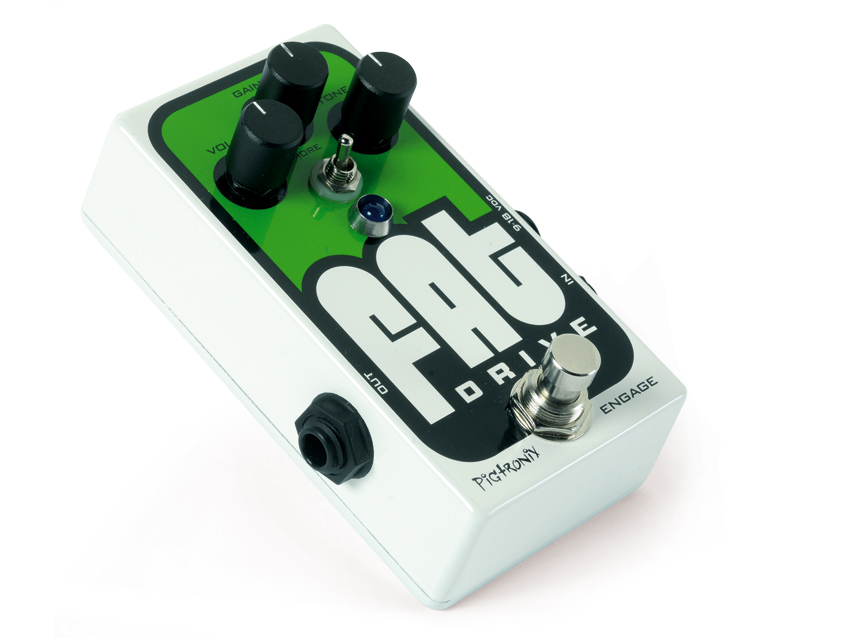MusicRadar Verdict
A smart, modern and intuitive pedal, with a great set of classic and contemporary tones. Best of all, this boutique quality comes in at a sensible price.
Pros
- +
Superb range without obliterating your amp's sonic identity.
Cons
- -
Not much.
MusicRadar's got your back
Just five minutes spent on Pigtronix's website will show you that the company is all about one thing: 'Futuristic Analogue Technology', or FAT for short.
Being that this is the FAT Drive, then, we ought to assume that this stylish little overdrive will do everything it takes to match that ambitious philosophy. And boy, does it.
From the first moment you switch the pedal on and start playing around with the gain levels, you can't but notice that it always retains your amp's original character. Take a vintage-voiced amp to sonic destruction and it'll still sound like your amp.
The drive sounds themselves offer a lot of scope for just about any genre, covering mild break-up to raunchy crunches and searing leads. The More toggle ups things further still, giving the gain stage a serious kick up the backside for even more scope than before.
The tone control serves as a low pass filter, perfect for shaping the high end and overall character of the drive. Turn it all the way up, though, and it disengages entirely, allowing the raw tone to shine through.
This can be a mistake in extreme conditions, but it's great to have the option there, and it just goes to show that the FAT Drive strikes a clever balance.
Want all the hottest music and gear news, reviews, deals, features and more, direct to your inbox? Sign up here.
